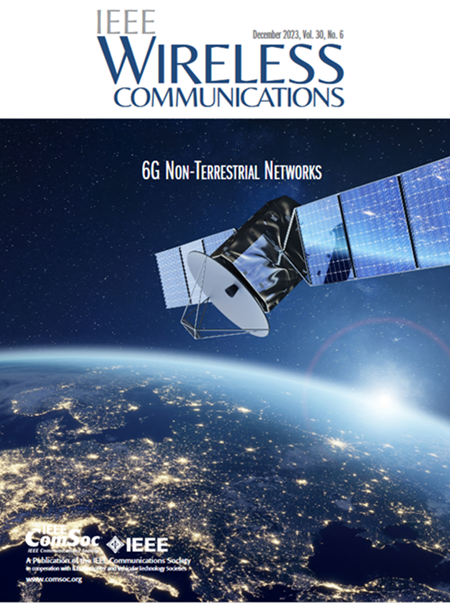Green Technologies for the Sustainable Metaverse and Web 3.0
IF 10.9
1区 计算机科学
Q1 COMPUTER SCIENCE, HARDWARE & ARCHITECTURE
引用次数: 0
Abstract
The concepts of Metaverse and Web 3.0 have surged in popularity, heralded as the “successor to the mobile Internet.” Web 3.0 represents a transformative shift in the Internet landscape, emphasizing user-centric decentralization. These core principles of Web 3.0 find their fullest realization in the Metaverse, which represents the next evolutionary stage of the Internet. The Metaverse envisions a seamless and interoperable fusion of Artificial Intelligence (AI) driven virtual worlds, enriched by user-generated content (UGC), and accessible through virtual/augmented reality (VR/AR) technologies. However, the around-the-clock maintenance of the Metaverse will require intensive computation load and heavy data traffic. Therefore, network densification must continually increase while adhering to stringent data rate and latency constraints, as well as the extreme bandwidth demands imposed by Metaverse applications. Under these circumstances, it becomes imperative to explore green technologies as a means to realize the sustainable development of the Metaverse. In this Special Issue, we have received a large number of submissions, and after rounds of careful reviews, we chose 10 papers for publication after a thorough revision process by at least two independent referees.可持续元世界和Web 3.0的绿色技术
Metaverse和Web 3.0的概念已经流行起来,被誉为“移动互联网的继承者”。Web 3.0代表了互联网格局的变革,强调以用户为中心的去中心化。Web 3.0的这些核心原则在Metaverse中得到了最充分的实现,它代表了Internet的下一个进化阶段。Metaverse设想了人工智能(AI)驱动的虚拟世界的无缝和可互操作融合,由用户生成的内容(UGC)丰富,并通过虚拟/增强现实(VR/AR)技术访问。然而,对Metaverse的全天候维护将需要大量的计算负载和大量的数据流量。因此,网络密度必须不断增加,同时还要遵守严格的数据速率和延迟限制,以及Metaverse应用程序对带宽的极端需求。在这种情况下,探索绿色技术作为实现虚拟世界可持续发展的手段势在必行。在这期特刊中,我们收到了大量的投稿,经过几轮仔细的审查,我们选择了10篇论文,经过至少两名独立审稿人的彻底修改程序发表。
本文章由计算机程序翻译,如有差异,请以英文原文为准。
求助全文
约1分钟内获得全文
求助全文
来源期刊

IEEE Wireless Communications
工程技术-电信学
CiteScore
24.20
自引率
1.60%
发文量
183
审稿时长
6-12 weeks
期刊介绍:
IEEE Wireless Communications is tailored for professionals within the communications and networking communities. It addresses technical and policy issues associated with personalized, location-independent communications across various media and protocol layers. Encompassing both wired and wireless communications, the magazine explores the intersection of computing, the mobility of individuals, communicating devices, and personalized services.
Every issue of this interdisciplinary publication presents high-quality articles delving into the revolutionary technological advances in personal, location-independent communications, and computing. IEEE Wireless Communications provides an insightful platform for individuals engaged in these dynamic fields, offering in-depth coverage of significant developments in the realm of communication technology.
 求助内容:
求助内容: 应助结果提醒方式:
应助结果提醒方式:


